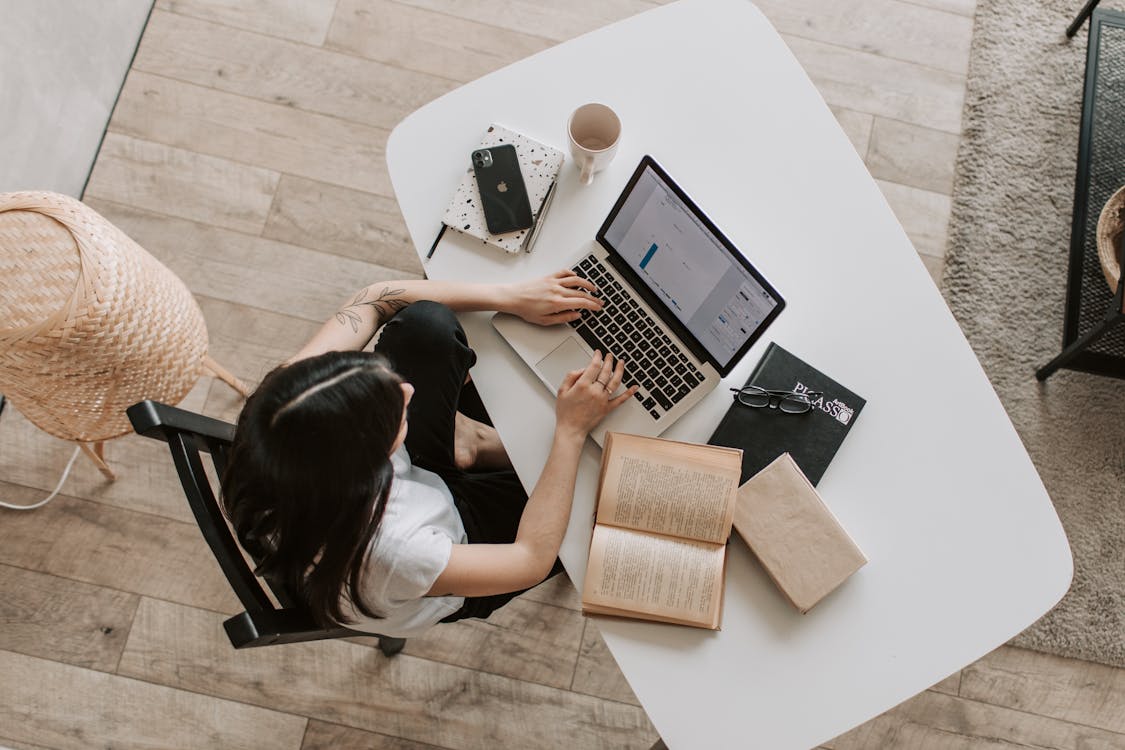Table of Contents
- The Science Explained: Why Screens and Sleep Don’t Mix
- More Than Just Blue Light: Other Ways Screens Sabotage Sleep
- Who Is Most Vulnerable to Screen Time’s Sleep Disruption?
- Recognizing the Signs: Is Screen Time Affecting Your Sleep?
- Reclaiming Your Sleep: Actionable Tips to Manage Screen Time
- 1. Establish a Screen-Free Buffer Zone Before Bed
- 2. Create a Relaxing Bedtime Routine
- 3. Make Your Bedroom a Tech-Free Sanctuary
- 4. Utilize Blue Light Filters and Dimming Features
- 5. Be Mindful of Content Consumption
- 6. Set Screen Time Limits and Reminders
- 7. Expose Yourself to Natural Light During the Day
- 8. Optimize Your Sleep Environment
- 9. Be Consistent
- Beyond Personal Habits: Societal Factors
- Conclusion: Take Control of the Glow, Protect Your Sleep
The Glow That Robs Your Sleep: Understanding the Impact of Screen Time and How to Reclaim Your Nights
It’s 11:37 PM. You told yourself you’d go to bed early tonight. Yet, here you are, bathed in the cool, artificial glow of your smartphone screen. Maybe you’re scrolling through social media feeds, catching up on news, watching one last (okay, maybe two last) YouTube video, or firing off a final work email. We’ve all been there. That seemingly harmless habit, however, might be the very culprit behind your restless nights and groggy mornings. Welcome to the complex relationship between **screen time** and **sleep** – a modern dilemma impacting millions.
In our hyper-connected world, screens are ubiquitous. From the moment we wake up to check notifications until the minute we drift off (often while still holding a device), screens dominate our lives. While they offer incredible convenience, information, and entertainment, this constant exposure, especially before bed, comes at a significant cost to our sleep quality and overall well-being. But how exactly does that late-night Instagram binge or Netflix marathon sabotage your slumber? And more importantly, what can you do about it?
This article dives deep into the science behind why screens disrupt sleep, explores the various ways they impact us, and provides practical, actionable tips to help you break the cycle and finally get the restorative rest you deserve. Prepare to understand the glow and learn how to reclaim your nights.

The Science Explained: Why Screens and Sleep Don’t Mix
It’s not just about the time you spend *looking* at a screen; it’s about *what* that screen is doing to your brain and body chemistry, particularly in the crucial hours leading up to bedtime.
The Blue Light Effect: Tricking Your Brain’s Clock
The most frequently cited culprit is **blue light**. Our smartphones, tablets, laptops, and even some TVs emit significant amounts of light across the spectrum, but it’s the blue wavelengths that pose the biggest problem for sleep. Why? Because blue light closely mimics daylight.
Our bodies operate on an internal clock known as the **circadian rhythm**. This roughly 24-hour cycle governs our sleep-wake patterns, hormone release, body temperature, and other vital functions. It’s primarily regulated by light exposure.
During the day, natural sunlight (rich in blue light) tells our brain, specifically a tiny region called the suprachiasmatic nucleus (SCN) in the hypothalamus, that it’s time to be awake and alert. As daylight fades in the evening, the SCN signals the pineal gland to start producing **melatonin**, the hormone that makes us feel drowsy and prepares us for sleep.
Here’s the problem: when you expose your eyes to the artificial blue light emitted by screens in the evening, you essentially send a confusing signal to your brain. Your SCN interprets this blue light as daylight, leading it to suppress **melatonin** production. Studies have shown that exposure to blue light in the hours before bed can significantly delay the onset of melatonin release, reduce its overall amount, and push back your natural sleep schedule. Even a couple of hours of screen time in the evening can make it harder to fall asleep and reduce the quality of the sleep you eventually get.
Cognitive Stimulation: Keeping Your Brain Wired
Beyond the physiological effects of blue light, the *content* we consume on screens plays a significant role. Engaging with stimulating material keeps our minds active and alert when they should be winding down.
- Interactive Content: Playing video games, scrolling through social media, or even engaging in heated text conversations requires active mental participation. This cognitive arousal is the opposite of the calm, relaxed state needed to initiate sleep.
- Emotionally Charged Content: Reading stressful news articles, watching thrilling movies, or encountering upsetting posts online can trigger emotional responses like anxiety, anger, or excitement. These emotions activate the body’s stress response system, releasing cortisol (the stress hormone), further inhibiting sleep.
- The ‘Just One More’ Phenomenon: The design of many apps and platforms encourages continuous engagement (think infinite scroll or auto-playing videos). This makes it easy to lose track of time and push bedtime later and later, a behaviour known as **bedtime procrastination**.
Delayed Sleep Phase: Pushing Bedtime Back
The combination of melatonin suppression and cognitive stimulation often leads to a delay in your natural sleep onset. You simply don’t feel tired when you normally would. This can create a vicious cycle: you go to bed later, struggle to wake up in the morning, feel tired during the day (perhaps relying on caffeine), and then repeat the late-night screen use pattern. Over time, this can shift your entire sleep schedule, leading to what’s known as delayed sleep-wake phase disorder, particularly common among adolescents and young adults.
More Than Just Blue Light: Other Ways Screens Sabotage Sleep
While blue light gets the most attention, the negative impact of screen time on sleep is multifaceted.
FOMO and Social Pressure
The Fear Of Missing Out (FOMO) is a powerful driver of late-night screen use. Social media constantly presents curated highlights of others’ lives, creating pressure to stay connected and updated. Checking notifications, responding to messages immediately, and being constantly available can significantly interfere with establishing a calming pre-sleep routine.
Work Creep and Mental Boundaries
For many, smartphones blur the lines between work and personal life. Checking work emails or tackling tasks late at night keeps the brain in ‘work mode,’ making it difficult to switch off and relax. This lack of mental detachment is a major barrier to restful sleep.
Displacing Relaxing Activities
Every minute spent scrolling or streaming before bed is a minute *not* spent on activities that genuinely promote relaxation and prepare the body for sleep. Reading a physical book, taking a warm bath, light stretching, meditation, or quiet conversation are often displaced by the lure of the screen.
Who Is Most Vulnerable to Screen Time’s Sleep Disruption?
While everyone is susceptible, certain groups may experience more pronounced effects:
Teenagers and Young Adults
Adolescents experience a natural shift in their circadian rhythm (sleep phase delay), making them biologically inclined to go to bed later and wake up later. This is often compounded by heavy screen use for socializing, entertainment, and schoolwork. Early school start times clash with this delayed sleep schedule, leading to chronic sleep deprivation, which can impact mood, academic performance, and overall health.
Children
Young children’s brains are still developing, and their sleep patterns are more sensitive to disruption. Excessive screen time, especially near bedtime, can lead to difficulty settling down, nightmares, and shorter sleep duration. The American Academy of Pediatrics recommends strict limits on screen time for young children and avoiding screens entirely for at least an hour before bed.
Individuals with Pre-existing Sleep Issues
People already struggling with insomnia or other sleep disorders may find that screen use exacerbates their problems. The stimulating effects of screens can heighten anxiety about sleep, making it even harder to drift off.
Recognizing the Signs: Is Screen Time Affecting Your Sleep?
How do you know if your screen habits are interfering with your rest? Look out for these common signs:
- Difficulty Falling Asleep: Lying awake for more than 20-30 minutes after getting into bed.
- Frequent Night Wakings: Waking up multiple times during the night and struggling to get back to sleep.
- Non-Restorative Sleep: Waking up feeling groggy, unrefreshed, and tired, even after spending enough hours in bed.
- Daytime Fatigue and Sleepiness: Feeling drowsy, lacking energy, and needing naps during the day.
- Irritability and Mood Swings: Sleep deprivation significantly impacts emotional regulation.
- Difficulty Concentrating: Poor sleep impairs cognitive functions like focus, memory, and decision-making.
- Increased Reliance on Caffeine: Using coffee or energy drinks to combat daytime tiredness.
- Bedtime Procrastination: Consistently staying up later than intended due to screen use.
If several of these sound familiar, it might be time to reassess your relationship with screens, especially in the evening.

Reclaiming Your Sleep: Actionable Tips to Manage Screen Time
The good news is that you *can* mitigate the negative effects of screen time on your sleep. It requires conscious effort and establishing healthier habits. Here are practical strategies:
1. Establish a Screen-Free Buffer Zone Before Bed
This is perhaps the most crucial step. Aim to power down all electronic devices – smartphones, tablets, laptops, TVs – at least 60-90 minutes before your intended bedtime. This allows your brain time to wind down and **melatonin** production to begin naturally.
2. Create a Relaxing Bedtime Routine
Replace screen time with calming activities that signal to your body that it’s time to sleep. Consider:
- Reading a physical book or magazine (under dim light).
- Taking a warm bath or shower.
- Listening to calming music or a podcast (use a non-screen device if possible, or set a sleep timer).
- Light stretching or yoga.
- Meditation or deep breathing exercises.
- Journaling.
- Spending quiet time with a partner or pet.
3. Make Your Bedroom a Tech-Free Sanctuary
Your bedroom should be associated with sleep and intimacy, not work or entertainment. Keep screens out of the bedroom entirely. Yes, that includes your smartphone!
- Charge Devices Elsewhere: Charge your phone and other devices overnight in another room (like the kitchen or living room).
- Use a Traditional Alarm Clock: Invest in an old-school alarm clock instead of relying on your phone alarm. This removes the temptation to check your phone first thing upon waking or if you wake up during the night.
4. Utilize Blue Light Filters and Dimming Features
If completely avoiding screens before bed isn’t feasible, take steps to minimize blue light exposure:
- Night Shift/Comfort View: Most smartphones and computers have built-in settings (like Apple’s Night Shift or Android’s Night Light/Eye Comfort Shield) that shift the screen color towards warmer tones (more yellow/red, less blue) during evening hours. Schedule these to turn on automatically.
- Dim Brightness: Lower the brightness of your screens significantly in the evening.
- Blue Light Filtering Glasses: Consider wearing glasses specifically designed to block blue light if you must use screens close to bedtime. Research suggests they can help mitigate melatonin suppression.
- Software Filters: Apps like f.lux can automatically adjust your computer screen’s color temperature based on the time of day.
While helpful, remember that filters primarily address the blue light issue, not the cognitive stimulation aspect. Reducing overall screen time before bed remains the most effective strategy.
5. Be Mindful of Content Consumption
If you are using screens in the hours before your buffer zone begins, be mindful of *what* you’re consuming. Avoid stressful, overly exciting, or emotionally charged content. Opt for relaxing videos, calming games (if any), or light reading.
6. Set Screen Time Limits and Reminders
Use built-in features on your phone or third-party apps to track your screen time and set daily limits for specific apps (especially social media and video streaming). Set reminders to prompt you to start winding down an hour or two before bed.
7. Expose Yourself to Natural Light During the Day
Strengthen your **circadian rhythm** by getting ample natural light exposure, especially in the morning. This helps anchor your internal clock and can make you less sensitive to artificial light at night. Try taking a walk outside shortly after waking up.
8. Optimize Your Sleep Environment
Ensure your bedroom is conducive to sleep: dark, quiet, and cool. Use blackout curtains, earplugs, or a white noise machine if needed. A comfortable mattress and pillows are also essential.
9. Be Consistent
Stick to a regular sleep schedule, going to bed and waking up around the same time every day, even on weekends. Consistency reinforces your body’s natural sleep-wake cycle.

Beyond Personal Habits: Societal Factors
It’s also important to acknowledge that managing screen time isn’t solely about individual willpower. Societal expectations play a role.
- Work Culture: Expectations of constant availability and responding to emails outside of work hours contribute to late-night screen use. Advocating for healthier work boundaries is essential.
- Social Norms: Constant connectivity is often the norm. Choosing to disconnect can sometimes feel isolating, but prioritizing sleep is crucial for long-term health.
- Educational Demands: Increasing reliance on digital platforms for homework and learning can extend screen time for students into the evening hours.
Addressing these broader factors requires systemic changes and open conversations about the importance of digital well-being and **sleep hygiene**.
Conclusion: Take Control of the Glow, Protect Your Sleep
The allure of the screen is powerful, offering endless information and entertainment at our fingertips. However, unchecked **screen time**, particularly in the hours leading up to bed, poses a significant threat to our **sleep**. The emission of **blue light** disrupts **melatonin** production and our natural **circadian rhythm**, while engaging content keeps our brains stimulated and awake. The consequences range from difficulty falling asleep and poor sleep quality to daytime fatigue, mood disturbances, and impaired cognitive function.
But knowledge is power. By understanding *how* screens affect sleep, you can take deliberate steps to mitigate their impact. Implementing strategies like establishing a screen-free buffer zone before bed, creating a relaxing bedtime routine, keeping the bedroom tech-free, utilizing blue light filters, and being mindful of content consumption can make a profound difference.
It won’t always be easy, and occasional late-night screen use might happen. The goal isn’t perfection, but progress. Start small, be consistent, and prioritize your rest. Protecting your sleep is one of the most critical investments you can make in your physical health, mental clarity, and overall quality of life. Turn off the glow, embrace the calm, and rediscover the power of a truly restorative night’s sleep.











